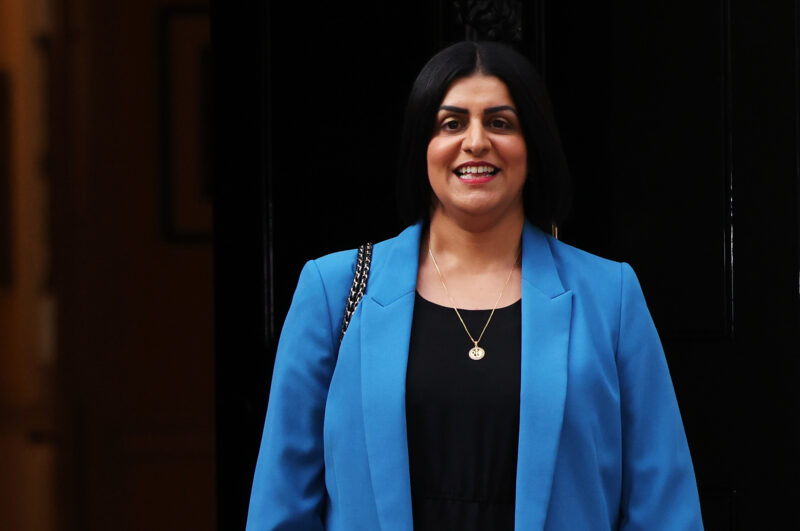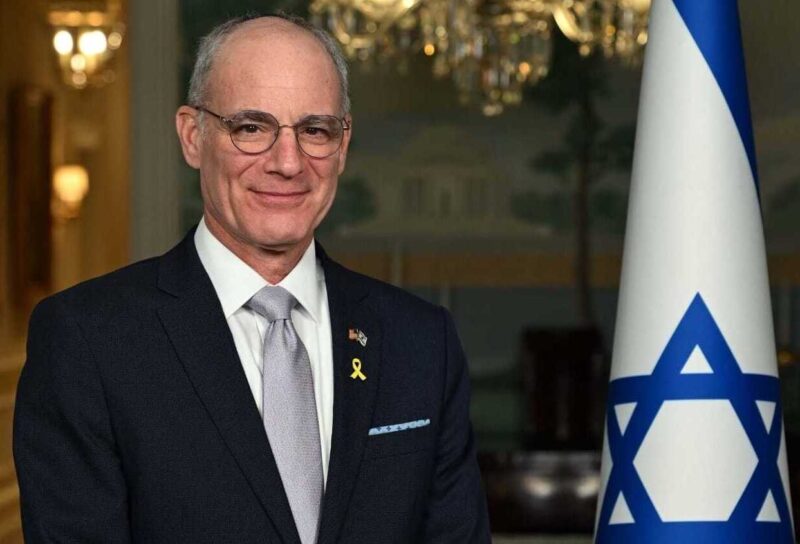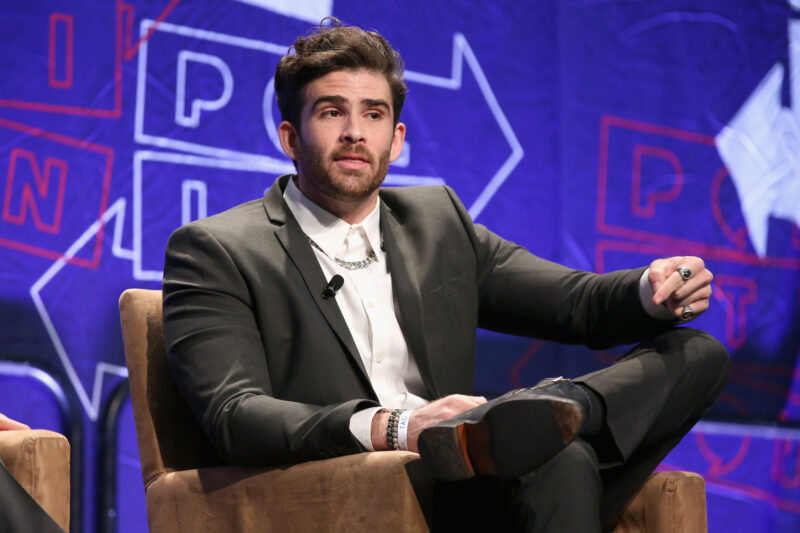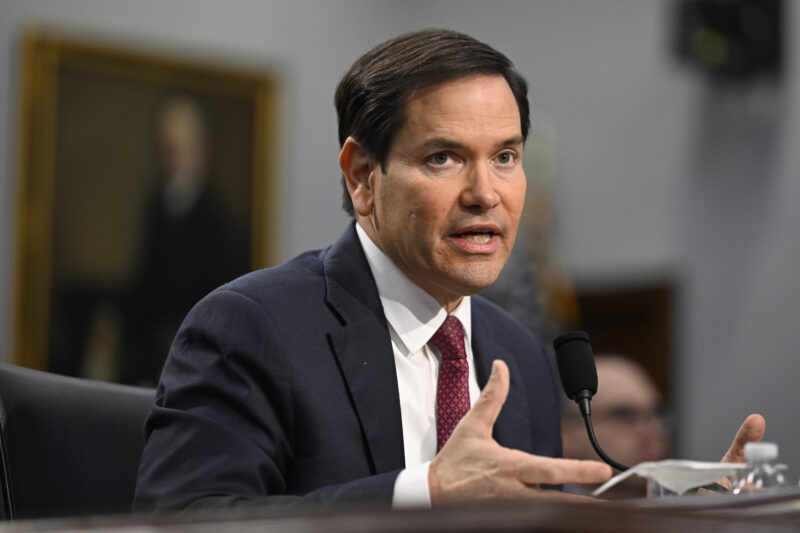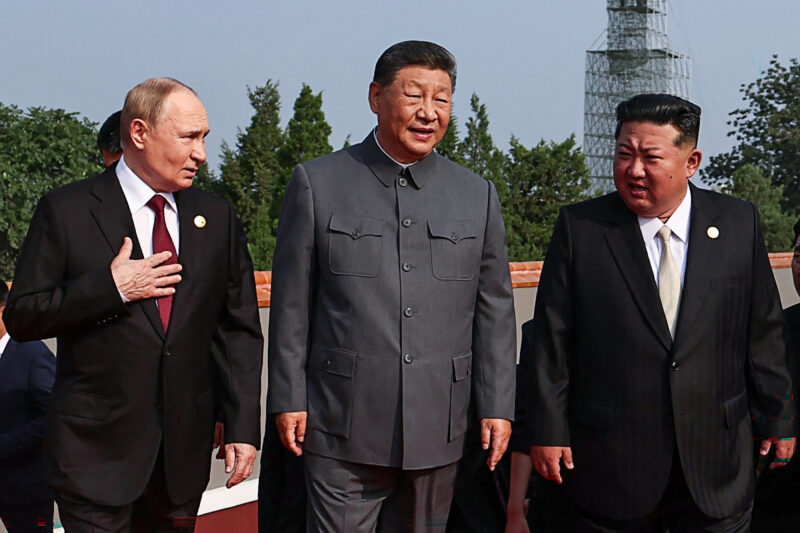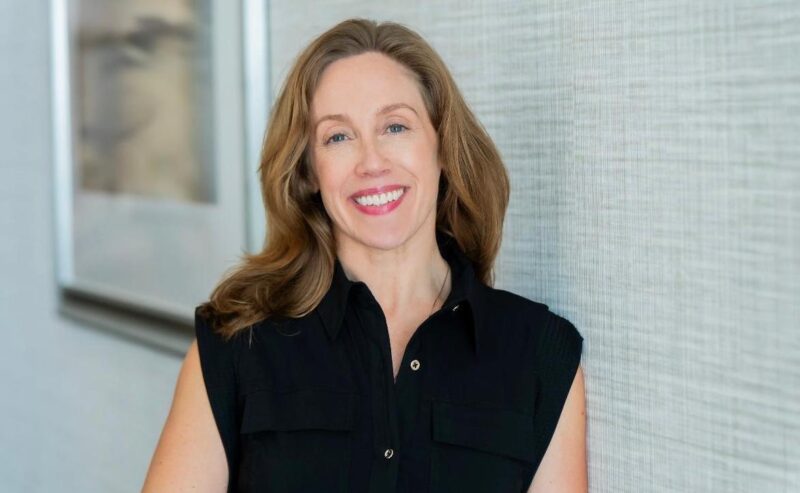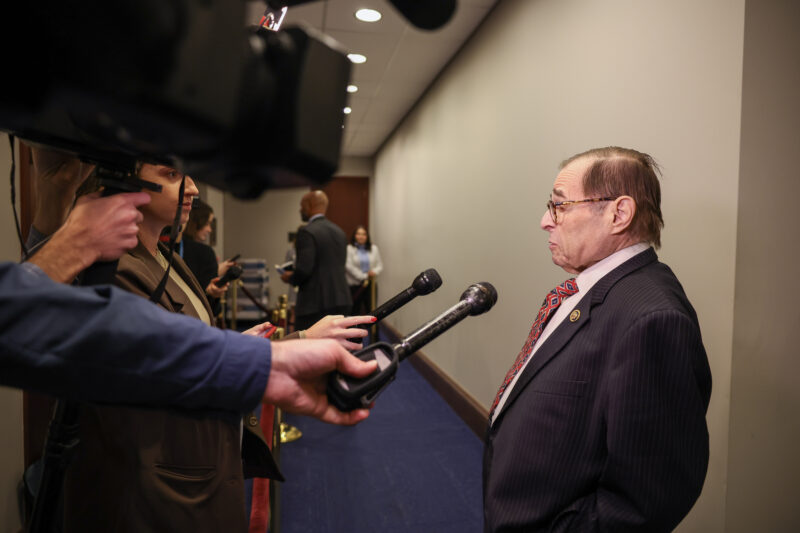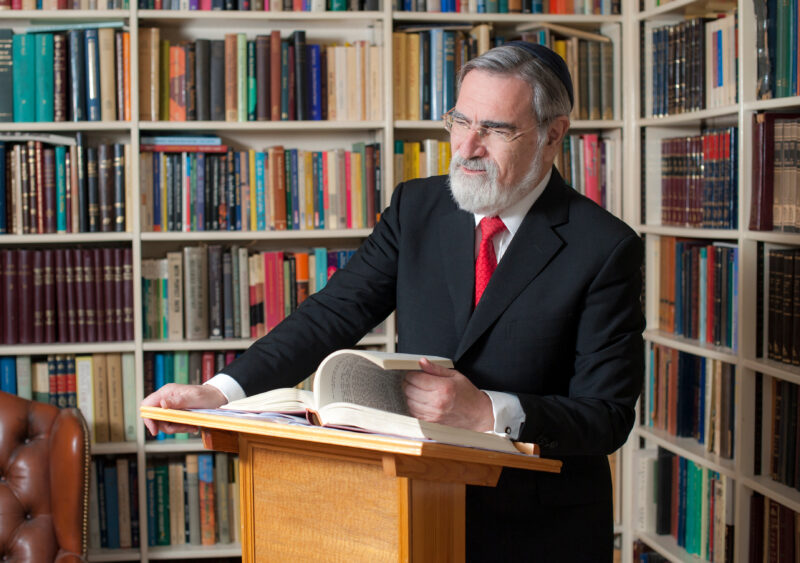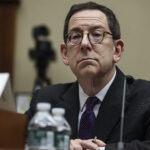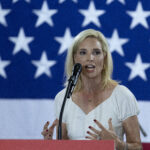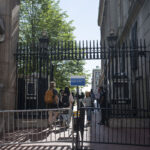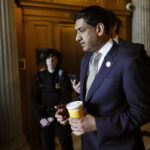Israel’s foreign minister is looking for a way to spend $150 million on public diplomacy
Influencers converged on the Foreign Ministry, as Gideon Sa’ar tries to brainstorm a new strategy for Israel’s public diplomacy

JACK GUEZ/AFP via Getty Images
Gideon Saar gives a press conference in the central city of Ramat Gan on July 10, 2022.
A model, a comedian and a makeup influencer walk into Israel’s Foreign Ministry. No, that’s not a joke – it’s part of how Israeli Foreign Minister Gideon Sa’ar is trying to formulate a new public diplomacy, or hasbara, strategy for Israel.
The Foreign Ministry’s budget for public diplomacy in 2025 is expected to be $150 million — over 20 times what it was before the war began in 2023.
Sa’ar insisted on the major budget increase when he and his United Right Party joined the governing coalition last month and he became foreign minister. At the time, Sa’ar said the budget would go toward “media campaigns abroad, in the foreign press, on social media, and more,” including “concentrated activity on U.S. campuses to change their attitude towards Israel and its policies.”
What he does not have yet is a plan for what to do with all of that money – and that’s where the influencers come in.
Sa’ar and his deputy, Sharren Haskel, have been holding wide-ranging brainstorming sessions with different groups of people with experience in the public diplomacy field to get ideas.
Dozens of “influencers and public opinion leaders,” as the Foreign Ministry described them, have attended, ranging from people like former government spokesman Eylon Levy, former IDF English-language spokesman and current Foundation for Defense of Democracies fellow Jonathan Conricus, Institute for National Security Studies fellow Ophir Dayan and StandWithUs Jerusalem Executive Director Michael Dickson to makeup YouTuber-turned-hasbara influencer Ashley Waxman-Bakshi, Israeli model Nataly Dadon and comedian Yohay Sponder.
Sa’ar held another meeting this Thursday with leading figures in civil society organizations that deal with public diplomacy-adjacent matters, including the Jewish Agency, ELNET, AJC, Nefesh B’Nefesh, NGO Monitor, the World Zionist Organization and Honest Reporting. Future meetings are planned for Arabic and Spanish speakers, the tech sectors, campuses and Israeli-led foreign aid organizations.
“We are in the middle of an effort to change the approach towards the whole topic that was once called hasbara, and that I call ‘consciousness warfare,'” Sa’ar said. “The democratic world is influenced by public opinion…and when it is not good for us, then it influences the elected political level’s space to maneuver in the international arena.”
Sa’ar said he is seeking to make immediate changes and to implement a new strategy in the medium term.
The minister told his audience that when it comes to changing strategies, “the ‘what’ is pretty clear. The ‘how’ we can learn from everyone who works in this field.”
A source in the organization leaders meeting said that he had the impression that Sa’ar relished in the attendees’ criticism of the Foreign Ministry. The source described David Saranga, the Foreign Ministry’s director of digital diplomacy, as Sa’ar’s “foil,” who was repeatedly asked by the minister, “Why don’t you do this, why don’t you do that?”
“The impression I got is that Gideon is coming to the Foreign Ministry to kick some ass,” the source said on condition of anonymity. “He clearly wants to shake things up if he’s taking advice from [pro-Israel Internet figure] Hillel Fuld and [NGO Monitor President] Gerald Steinberg and asking [diplomats], ‘Why haven’t you been doing what they say all these years.’ He was essentially saying to the Foreign Ministry workers present, ‘Why aren’t you doing your job?’”
One example the source cited was that after Palestinian Media Watch founder Itamar Marcus spoke, Sa’ar asked why he does not receive the information about how much money a country donates to the Palestinian Authority, which funds salaries for terrorists and their families, before each conversation with his foreign counterparts and diplomats.
“He wants to turn the Foreign Ministry into Palestinian Media Watch,” the source said. “It’s clear he wants to make the Foreign Ministry more right-wing.”
Multiple sources in the meetings – most of whom declined to speak on the record out of a concern for their ongoing cooperation with the Foreign Ministry – said they were impressed by how closely Sa’ar paid attention even as the meetings went on for much longer than the hour and a half for which they were scheduled.
Fleur Hassan-Nahoum, the former deputy mayor of Jerusalem and co-founder of the UAE-Israel Business Council, who was at the influencers meeting, told Jewish Insider that “the foreign minister is taking the time to do something uncharacteristic of government — and listen. He sat there with a notebook and took notes.”
Someone else at the meeting, who works in hasbara, said he was “surprised at the way [Sa’ar] was really present and communicative. It was different from what I experienced with other ministers before him, who seemed to just talk to me to check a box.”
Among the suggestions that came up in Thursday’s meeting was for Jewish Agency emissaries to receive information that can be relayed to the public as soon as diplomats do. Several organizations’ leaders suggested that information be relayed faster, such as Honest Reporting, which asked to receive details about journalists killed in IDF actions who were members of terrorist organizations.
Leaders from Druze organizations also noted that they are an untapped resource.
The influencers meeting, as one attendee put it, was “a mixture of very serious people and very nonserious people, like a TikToker who said he does hasbara in Spanish after learning the language by watching telenovelas.”
There were presentations from figures such as Conricus, who came prepared with a list of action items. Hassan-Nahoum focused on the need for more structure and strategy in Israel’s public diplomacy.
Jonathan Elkhoury, an advocate for Israel who is a gay Christian Arab refugee from Lebanon living in Israel since 2001, told JI that he “focused on minority voices…My life mission is to give a platform to Israeli minorities through delegations…My belief is that we need to be on the ground, speaking with students on campuses, and speaking with people in their communities. We need to show that we are humans and not these monsters that they say we are, to share our personal stories and not just one-minute videos full of buzzwords.”
One repeatedly mentioned suggestion was to hire different public relations professionals to target different constituencies. “Videos in French cannot have messaging made for the U.S.,” an attendee said. “LGBT issues cannot be sent out to the Arab world. Every platform, every audience needs to have its own messages…[Israeli public diplomacy] needs to stop being amateurish. We need to stop working in an echo chamber.”
Many attendees requested security assistance for Israeli advocates when they travel abroad or take part in pro-Israel events.
More experienced attendees were critical of Israelis who became involved in the effort after the Oct. 7 attack on Israel.
“A lot of the people there are known to Israelis, and their messaging is to Israelis,” an attendee said. “I heard a lot of criticism of that. Public diplomacy videos shouldn’t be published with Hebrew subtitles.”
Another attendee recounted that “one of these Israelis who had nothing to do with hasbara before…started doing press tours with hostages and their families. She gets up and says, ‘Thanks to my work, Switzerland defunded [UN agency for Palestinians] UNRWA.’ People have been working on the UNRWA issue for years. Does [UN Watch Executive Director] Hillel Neuer not exist?”
Dadon, the model, called for greater censorship in the Israeli press, saying that Israeli media gives critics of Israel fodder to use against them. Sa’ar responded that Israel can’t even control what soldiers put on social media, let alone the press, according to multiple attendees.
Sponder, the comedian, opened his presentation with a joke that, now that the Foreign Ministry has so much money, it should pay each of them a million shekels for the free hasbara work they have been doing for the past year, according to attendees. He continued, however, with serious remarks about the potential to break down stereotypes with humor.
Asked how the attendees were chosen, a Foreign Ministry source said they sought to hear from a wide range of voices involved in Israel advocacy, including from nontraditional sources.
One attendee called the proceedings a “circus,” and another said they “weren’t focused. It was mainly to listen. I left with the impression that it was a meeting that could have been an email. There was no call to action, we didn’t reach a conclusion at the end.”
However, another said that “Sa’ar threw a wide net, but he will understand who the serious people in the room were,” and said the minister’s staff discussed the possibility of a smaller task force moving forward.




